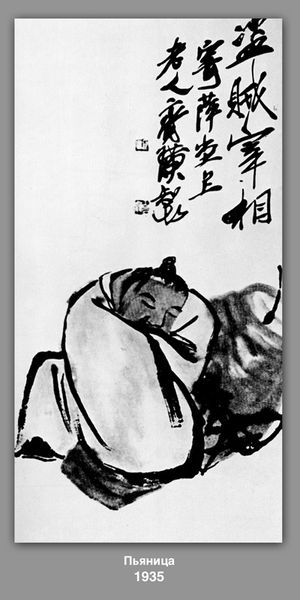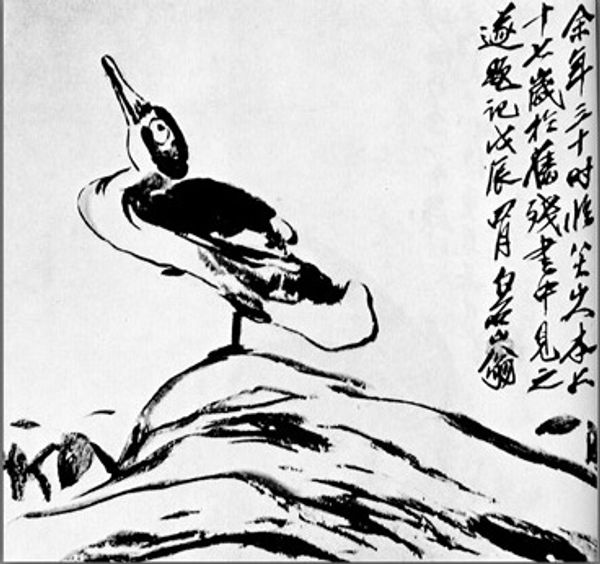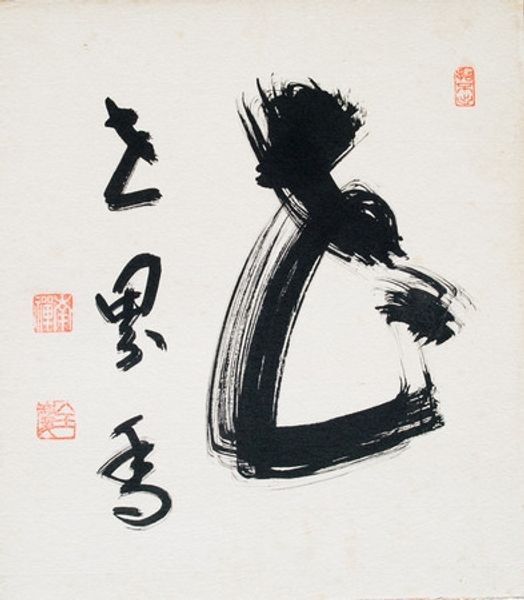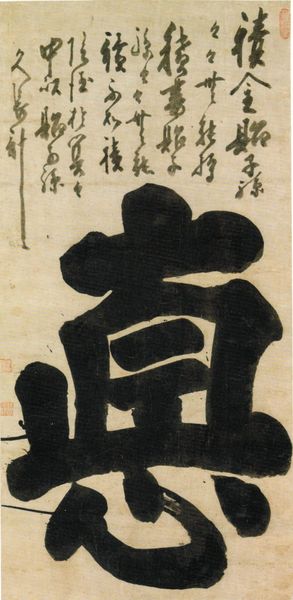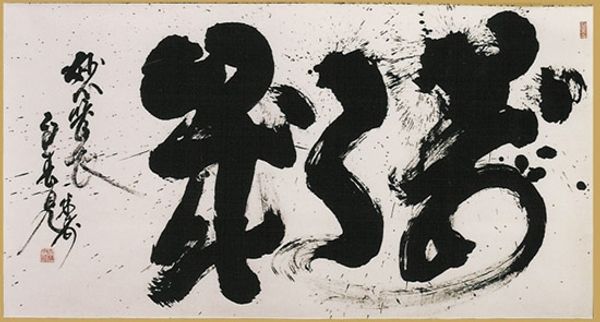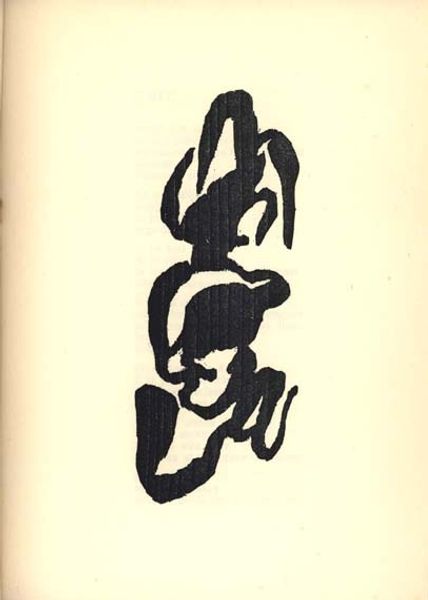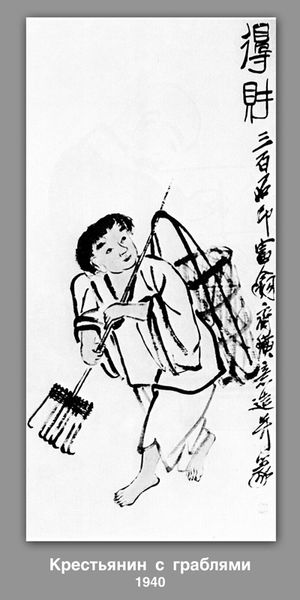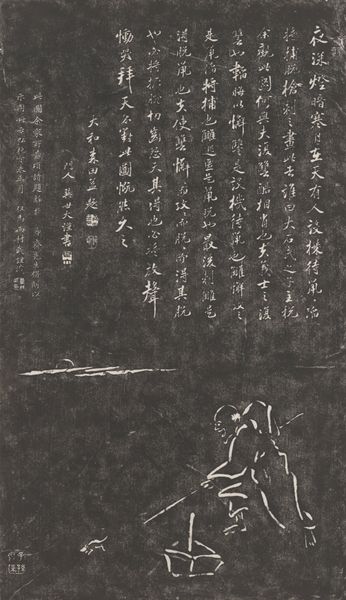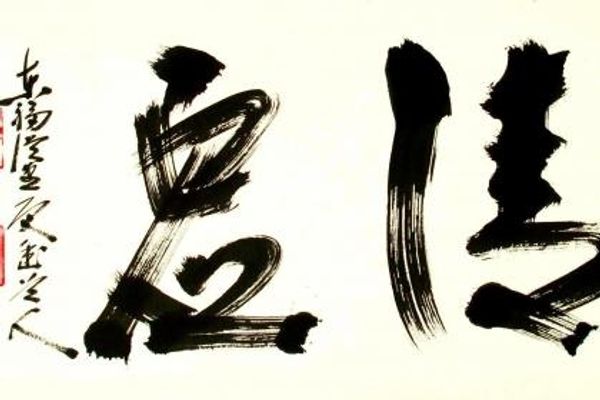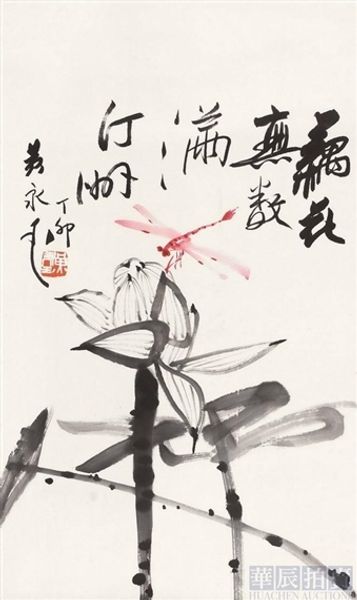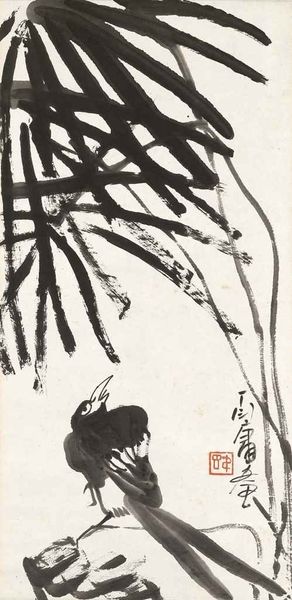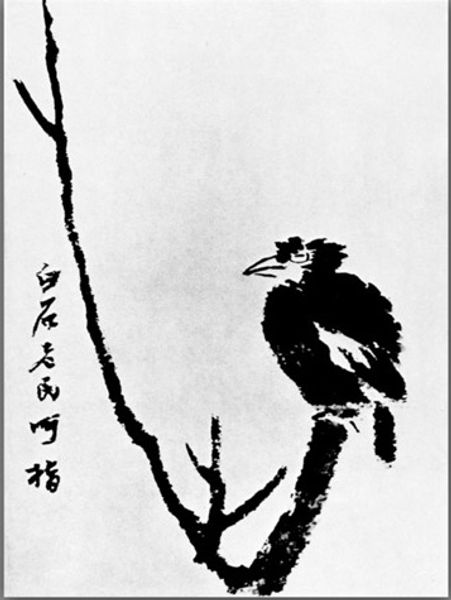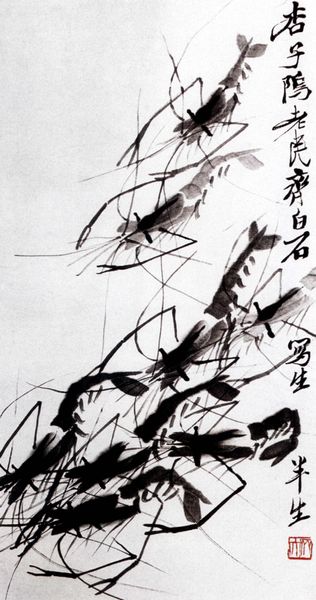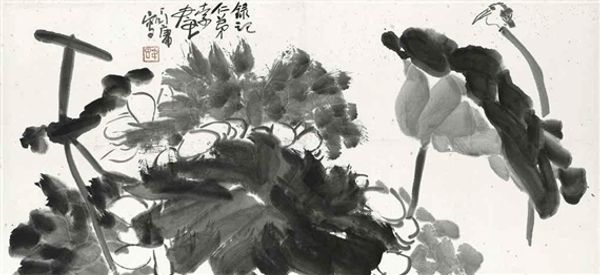
drawing, ink
#
drawing
#
asian-art
#
flower
#
figuration
#
ink
#
hand drawn
#
plant
#
line
#
hand-drawn
#
calligraphy
Copyright: Public domain China
Qi Baishi made this ink painting of a persimmon and moth sometime in the first half of the 20th century in China. The loose brushstrokes and monochrome palette are typical of the literati painting tradition, reaching back centuries. But by the 20th century, the social function of such art was changing. After the fall of the Qing dynasty in 1912, artists debated how traditional forms could serve a new nation. Some, like Qi Baishi, embraced a more accessible style, depicting everyday subjects like fruits and insects. Was this a rejection of the elite culture of the past? Or a search for a broader audience? To understand Qi Baishi's art, we must consider the institutions that shaped him: the art academies, the exhibition societies, and the publishing houses that circulated his work. These are the resources we turn to, if we are to understand the meaning of this deceptively simple image.
Comments
No comments
Be the first to comment and join the conversation on the ultimate creative platform.
